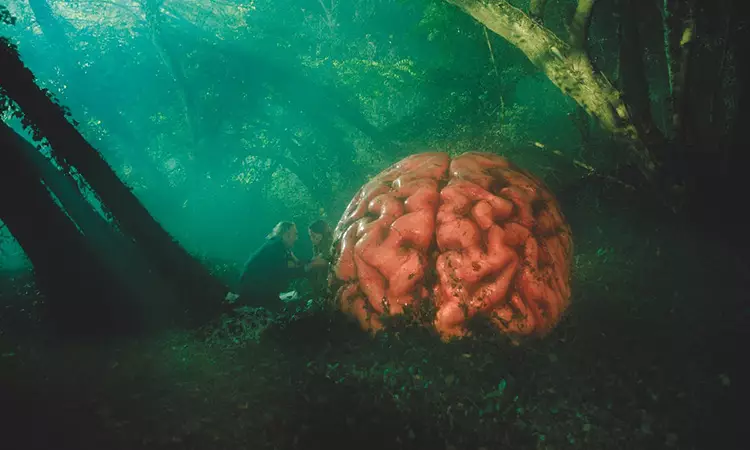As Guy Maddin’s film “Rumours” prepares for its UK cinematic release, it fundamentally mirrors the unpredictability of contemporary global politics. With pivotal events unfolding, such as the United States selecting a new president, the film’s thematic relevance is almost eerie. Filmed against the backdrop of potential economic and environmental disasters, “Rumours” endeavors to question the competency and efficacy of world leaders during a time of crisis. With such context, one might hope for a pointed critique of the political infrastructure guiding society today, particularly as the film is showcased at the prestigious London Film Festival and timed for a late-year release when discussions around leadership are fervent.
“Rumours” positions itself lapidarily in the realm of satire, taking aim at the G7 leaders as they congregate to draft a declaration amidst escalating turmoil. The film begins with what could be perceived as a quintessential political scene—a glamorous photocall for the global leaders, replete with the smiles and pomp that typically accompany such events. However, as the story progresses, the narrative swiftly turns surreal. As the leaders convene for dinner under the stars, inexplicable phenomena unfold: communication lines collapse, inexplicably animated mummies disrupt formal proceedings, and chaos ensues. Despite such pandemonium, the leaders’ primary objective remains unshakeable—they must finalize their document.
Maddin’s film introduces a cast of leaders who are both caricatures and reflections of today’s political landscape. The German Chancellor, Hilda (played by Cate Blanchett), is depicted as obsessively concerned with image, while the Canadian Prime Minister, Maxime (Roy Dupuis), grapples with romantic woes that seemingly distract him from pressing matters. The American President, portrayed by Charles Dance, is lethargic, failing to inspire confidence or demonstrate genuine leadership abilities. Stripped of their aides, these leaders become existentially vulnerable, unprepared to contend with adversity—an implicit commentary on their real-world counterparts. This disillusionment presents a grim perspective on governance, illustrating that without their entourages, even the most powerful are unprepared for crises.
While the premise is rich with potential, the execution has been critiqued for its lack of incisive humor. The satire that Wen might expect as the narrative unfolds comes across as more comical than cutting, lending itself to moments of laughter rather than the expected scathing social commentary. Some humor resonates well, but the frequent instances where the satire falls flat detract from the film’s overall impact. Bizarre elements, such as the unexpected appearance of a giant brain, introduce absurdity that risks alienating viewers rather than deepening the satirical commentary. This unevenness culminates in a jarring experience, somewhat undermining the effectiveness of Maddin’s insightful observations.
The ending of “Rumours” poses additional questions about its thematic intentions. Instead of a compelling finale, the film concludes on a lukewarm note that leaves audiences contemplative yet unfulfilled. “Rumours” attempts to critique the inefficacy of leadership; however, it often feels disjointed, resulting in muddled messaging. Audiences might find themselves questioning the coherence of the narrative, particularly regarding peculiar character choices, such as Dance’s American president speaking in a distinctly British accent. Such incongruities can detract from the film’s substantive commentary.
While Guy Maddin’s “Rumours” is hypothesis-rich, the film’s execution arguably veers towards disillusionment. The potential for resonating political satire is evident, yet it is often compromised by bluntness and surreal distractions. “Rumours” presents an effective staging ground for discussions surrounding contemporary leadership but may leave audiences desiring deeper explorations into its ambitious themes. Screening at the London Film Festival and scheduled for UK cinemas on December 6, it will be intriguing to see how audiences collectively interpret Maddin’s blend of whimsy and critique.

